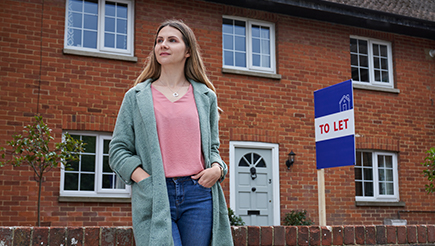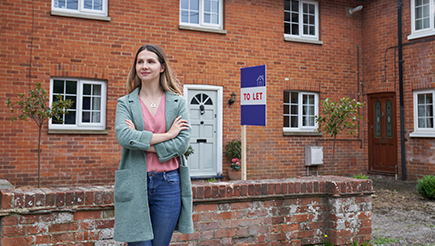Being a landlord can involve juggling a lot of different obligations, but it needn’t be overwhelming.
From special rules concerning fire safety to the different types of deposit protection schemes, these are the legal requirements you need to adhere to.
Fire safety
Sofas, cushions, chairs, beds – all soft furnishings must comply with the Furniture and Furnishings (Fire Safety) Regulations 1988. When buying new pieces, look out for the fire safety label that means they’re cigarette and match resistant. Carbon monoxide detectors and fire alarms must also be installed, and tenants need to have access to an escape route.
Gas and electrical safety
Appliances, pipes and flues should be kept in good condition by an engineer on the Gas Safe Register, which replace CORGI in 2009. Any problems can be identified during a yearly gas safety check, though you can help prevent issues by monitoring the Health and Safety Executive’s gas eBulletin. All electrical installations, meanwhile, must be in sound condition, while appliances should have the all-important CE stamp.
Energy Performance Certificates (EPCs)
They won’t take effect until April 2018, but from then all privately rented properties must have an EPC rating of ‘E’ or above. This will initially apply to new and renewing tenancies, but in April 2020 it will roll out to all current lettings. It’s been a legal requirement to have an EPC since October 2008.
Repairs
Landlords must ensure that their properties are fit for human occupation, which means they need to be structurally sound and have a functioning water supply, sewage network and heating system. Properties must also have lights, an equipped bathroom and be free of potentially harmful damp.
Accommodating disabled tenants
The Equality Act 2010 states that landlords must make “reasonable adjustments” to make it easier for disabled people to live in their property. This doesn’t necessarily mean physical modifications, but modifying tenancy agreement terms. Rules on pets, for example, may need to be relaxed if the tenant requires a live-in assistance dog.
The tenancy agreement itself, meanwhile, may need to be provided in accessible formats for prospective tenants who have a learning disability or are visually impaired.
Right to rent
Since February 2016, landlords have been required to check whether prospective tenants are legally allowed to rent a property in the UK. Landlords who don’t carry out the checks – which involve asking for a birth certificate and a council tax bill, or seeing a biometric residence permit for example – risk being landed with a £3,000-per-tenant fine.
Deposit protection schemes
Landlords utilising Assured Shorthold Tenancies are required to keep their tenants’ deposits in a deposit protection scheme. There are three such initiatives – the eponymous Tenancy Deposit Scheme, MyDeposits and Deposit Protection Service (Custodial and Insured). Each is backed by the government, with landlords required to pay in the deposit within 30 days of receiving it.
Paperwork
In addition to supplying tenants with tenancy agreements, landlords need to provide residents with a gas safety certificate, an EPC and the government’s 'How to rent: The checklist for renting in England' guide. Landlords will also have to keep records of rent received and declare this to HMRC, which categorises it as income.
Looking for more information about insurance? With AXA landlord insurance, we make protecting property simple.






